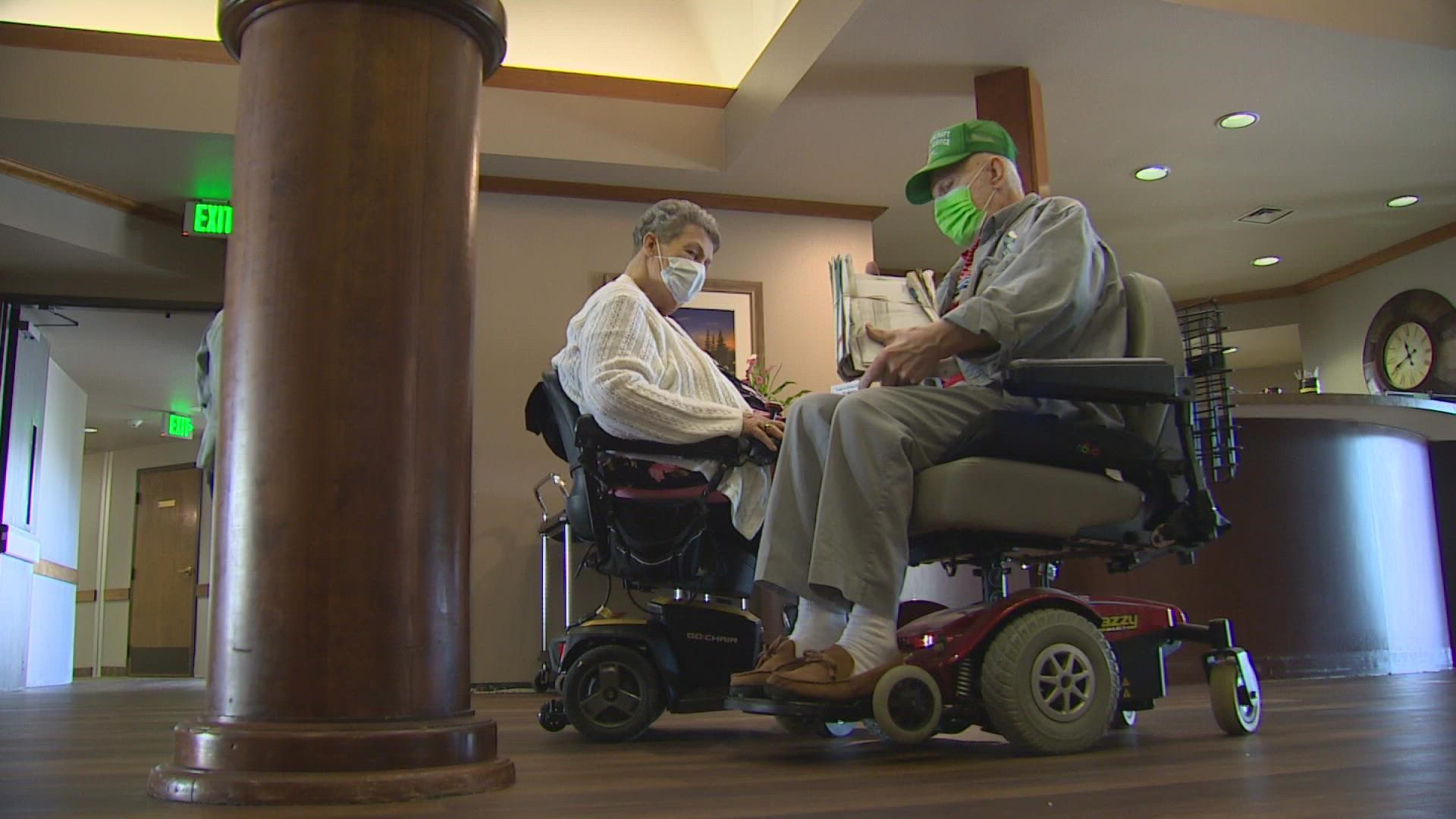OLYMPIA, Wash. — State lawmakers decided not enough people in Washington were saving for long-term care, so the state is going to start saving their money for them.
The Washington Cares Fund will start automatically collecting money from most paychecks in the state, starting in January. The fund will apply to anyone who works for a business, with some exemptions.
The fund does not apply to federal employees, tribes can choose to have their employees contribute to funds, and the self-employed will not be automatically enrolled but can choose to have funds withdrawn for a long-term care account.
Each earner will pay .58% of their gross salary into a trust fund, 58-cents for every $100 earned. Someone who earns $75,000 a year will pay about $435 a year into their account, according to Matt Buelow with the state’s Employment Security Department.
The fund, up to $36,500, can be used to supplement housing, in-home care, even home renovations related to a long-term health condition.
The funds cannot be used until 2025.
The only way to opt out is to have a long-term care savings account, or a rider on an insurance policy, already in place.
Applications can be filed starting Oct. 1.
“It’s a finite group of people who are going to be eligible for the exemption,” said Beulow, who said the state expects about 310,000 to qualify for exemptions to the savings.
Exemption applicants have to prove they will have savings accounts in place by Nov. 1, something Buelow said will be difficult for someone who is shopping for policies now.
“Our understanding is a lot of private companies are no longer accepting applicants, because of their backlog,” said Buelow, who said anyone with questions about the fund can go to the Washington Cares Fund website by clicking here.
Office of Insurance Commissioner (OIC) spokesperson Steven Valandra said the state has approved 12 companies to sell long-term care policies and another 22 can sell riders with life and annuity policies.
“Most if not all companies licensed to sell policies in Washington have stopped because they say they cannot meet the demand and deadline for processing policies by the opt-out date,” said Valandra.
He said to check with private insurance companies or to go to the OIC’s website here.
”We know that most of us are going to need long term care at some point in our lives, and very few of us have made a plan for that,” said Rep. Nicole Macri, D-Seattle.
Macri supported the legislation, creating the Washington Cares Fund, signed into law in 2019.
She said the money raised will not be enough to house someone in a nursing home, instead it’s meant to act as a safety net, like social security.
Macri said she envisions the funds being used to help someone who needs help live on their own. ”Either light homecare, transportation to medical appointments,” said Macri, “Maybe some adjustments to the home.”
Macri said the state needed to get people to save for their futures because the state cannot afford to pick up the tab for those who need help.
She said more than 6% of the state’s budget goes toward long-term care.
Making the fund optional would not work, said Macri, because not enough people would have chosen to enroll to make it effective.
Republican Rep. Joe Schmick said the fund gives people “false hope” because it doesn’t come close to providing enough money for someone to receive long-term care.
“I actually worked to defeat it every time it came up,” said Schmick, who said he plans on introducing a bill to change some of the fund’s rules when lawmakers return to Olympia in January.
He wants to limit how much someone has to pay into the fund and he wants people who move out of the state, or currently live in another state, to be able to spend their savings where they want.
Currently, the funds can only be used in the state of Washington.
“You live in Idaho and work in Washington, you're going to pay the tax and never get the benefit,” said Schmick, “And that's just plain, as far as I'm concerned, just wrong.”

